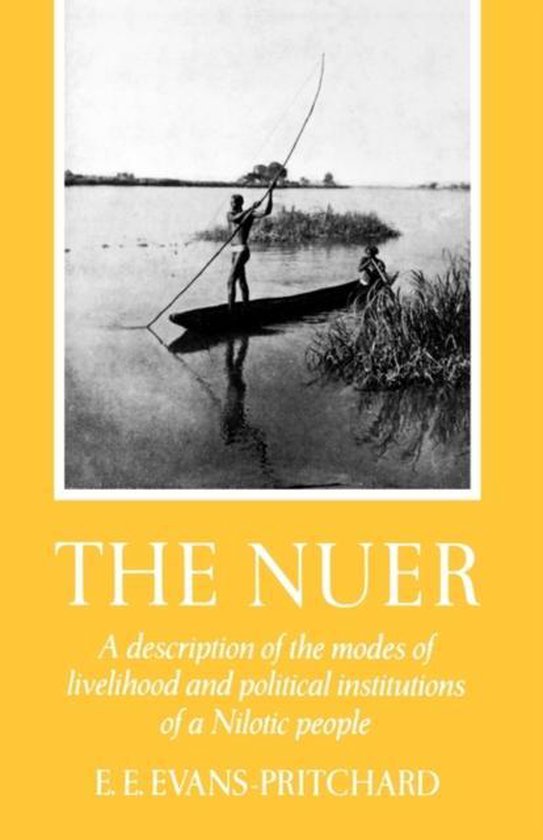
Nuer
-
AuteurE. E. Evans-Pritchard
- Uitgeverij-
- Jaar-
'Nuer' by E. E. Evans-Pritchard is a seminal work in the field of anthropology, offering an in-depth study of the Nuer people of South Sudan. Published in 1940, this book is a cornerstone of social anthropology, providing a detailed account of the Nuer's social structure, political system, and religious beliefs. Evans-Pritchard's ethnographic research is renowned for its methodological rigor and insightful analysis, making 'Nuer' a must-read for students and scholars alike. The book explores the intricate relationships within Nuer society, including kinship, marriage, and the role of cattle in their culture. With its rich narrative and comprehensive coverage, 'Nuer' remains a foundational text in understanding non-state societies and the complexities of human social organization.
Beschikbare exemplaren
Naam op voorblad geschreven. Verder is het boek in prima staat.